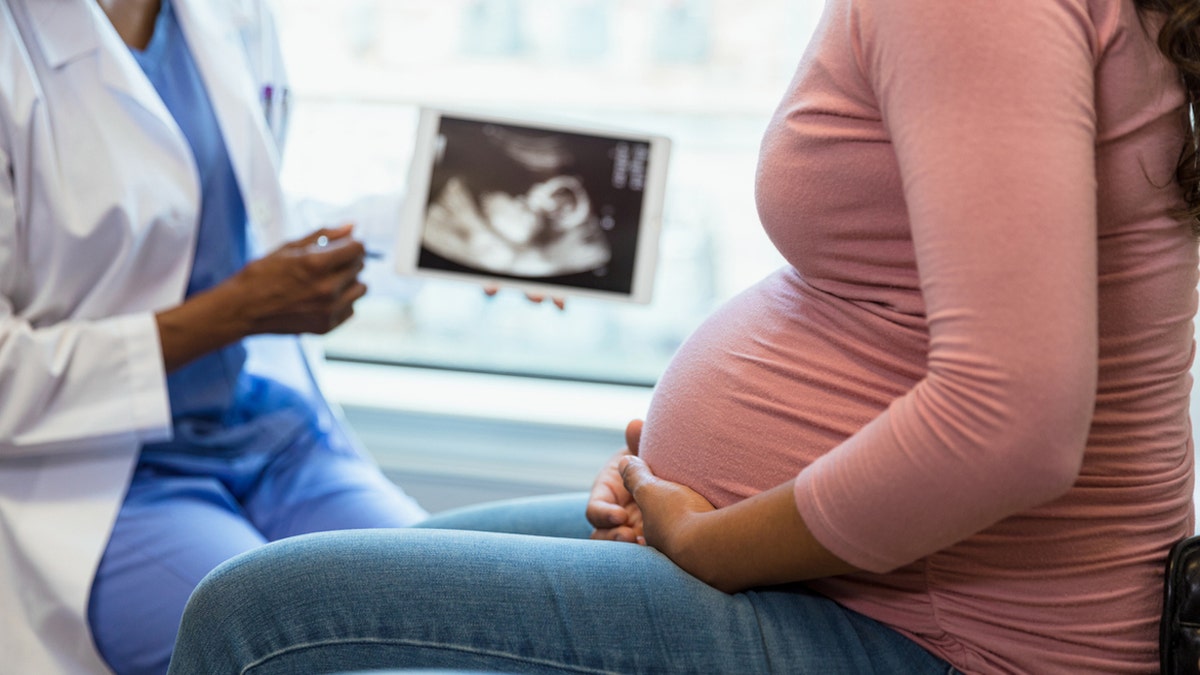Women’s safety should not be a ‘political football’ on abortion pill debate: Carrie Severino
Judicial Crisis Network President Carrie Severino says the abortion pill can have ‘health consequences’ without a doctor’s examination, as a federal judge weighs the lawsuit to ban the drug.
Pregnancy and childbirth are supposed to mark new beginnings and new life — but an increasing share of pregnant or recently pregnant women are facing untimely deaths.
The Centers for Disease Control and Prevention (CDC) on Thursday published a new report of the maternal mortality rates for 2021 — which showed an upward trend in women who died of maternal causes in the U.S.
In 2021, the report showed that 1,205 women died of maternal causes — an increase of more than 33% over 2020 and 46% more than 2019.
For every 100,000 live births in 2021, there were 32.9 maternal deaths, compared to 23.8 in 2020 and 20.1 in 2019, the report stated.
The World Health Organization (WHO) defines maternal death as "the death of a woman while pregnant or within 42 days of termination of pregnancy, irrespective of the duration and the site of the pregnancy, from any cause related to or aggravated by the pregnancy or its management, but not from accidental or incidental causes."

An increasing share of pregnant or recently pregnant women are facing untimely deaths in the U.S. (iStock)
Maternal death rates varied by race, age
All race groups saw significant increases in maternal deaths between 2020 and 2021, according to the report.
However, Black women experienced the largest share — 69.9 for every 100,000 births. That’s more than 2-½ times the rate for White women.
WOMEN MORE LIKELY TO SUFFER FROM ‘LONG COVID,’ BUT HEALTHY HABITS CAN LOWER THE RISK
The death rates also increased with age. In 2021, among women younger than 25, there were 20.4 deaths per 100,000 live births.
That rose to 31.3 deaths for women between 25 and 39, and 138.5 for women 40 and older.
That means there was nearly a 150% increase in maternal deaths between the youngest and oldest age groups.

There was a nearly 150% increase in maternal deaths between the youngest and oldest age groups. (iStock)
Amy Ahnert, M.D., co-director of the Cardio-Obstetrics Program at Lehigh Valley Health Network in Pennsylvania, was not involved with the research but reviewed the study findings.
"Unfortunately, this is not ‘new’ news," she told Fox News Digital in an email.
"The United States is one of very few countries in the world with rising maternal mortality."
Dr. Ahnert said she believes one reason is that women are delaying childbearing to later years — and thus may have more chronic health conditions.
"In addition, there is a rise in obesity and unhealthy lifestyles, and an increase in high blood pressure and other risk factors," she said.
Black women experienced 2-½ times the rate of maternal deaths as White women.
Heart disease is the leading cause of maternal mortality in the U.S., according to the Mayo Clinic.
Only about 40% of U.S. women who gave birth in 2019 had favorable heart health before getting pregnant, according to a new report by the American Heart Association.

A pregnant woman is shown during an exam. Heart disease is the leading cause of maternal mortality in the U.S. (iStock)
"We need to make changes to improve the cardiovascular health of women before pregnancy in order to lower our nation’s maternal mortality," said Dr. Ahnert.
To accomplish this, she stressed the need to increase the education of community and health care providers across all disciplines, starting well before pregnancy.
BISEXUAL WOMEN MAY FACE A HIGHER HEART DISEASE RISK, NEW RESEARCH SUGGESTS
"We need to address access to healthy food, access to health care and barriers to heart health," Dr. Ahnert said.
The doctor identified a need for programs dedicated to caring for women at risk before, during and after pregnancy.
"This must include a greater focus on research and understanding barriers to better health for high-risk women."
CLICK HERE TO SIGN UP FOR OUR HEALTH NEWSLETTER
Finally, the doctor identified a need for programs dedicated to caring for women at risk before, during and after pregnancy.
"This may include close monitoring of symptoms, blood pressure and other important clinical clues to suggest higher risk," she said.
CLICK HERE TO GET THE FOX NEWS APP
Data for this report came from the National Vital Statistics System Mortality file, which includes records of all registered U.S. deaths from 1900 to the present day.
The report does not include all deaths of pregnant women, but only those that were related to maternity.









































